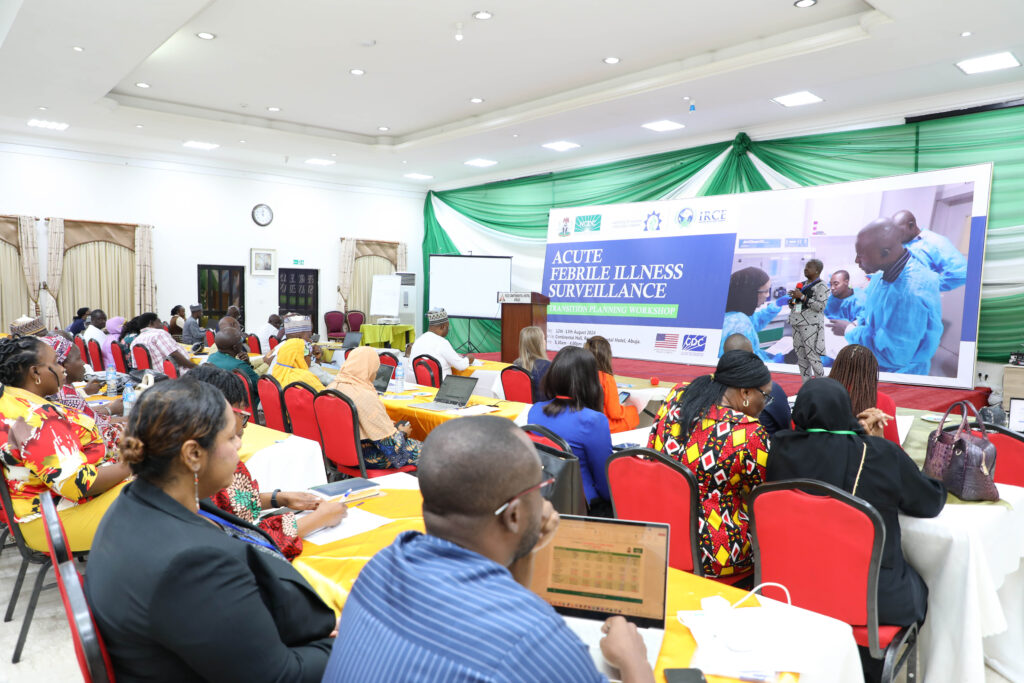To enhance surveillance and response to acute febrile illness in Nigeria, the Institute of Human Virology, Nigeria (IHVN) has hosted a collaborative meeting with the Nigeria Centers for Disease Control (NCDC), US Centers for Disease Prevention and Control (CDC), representatives from the Federal and State Ministry of Health, health care workers and other stakeholders.
The two-day meeting in Abuja reviewed the progress of the Acute Febrile Illness Surveillance (AFIS) Project. The AFIS project commenced in 2022 to determine the cause of AFI among different age groups and strengthen the epidemiological and laboratory capacity of the country to address acute febrile illness.
At the meeting, the Executive Director of the International Research Center of Excellence (IRCE) Prof. Alash’le Abimiku, highlighted the essential role of collaboration in advancing Nigeria’s healthcare system. She reaffirmed the commitment of all partners to support the Nigerian government in implementation of the project as it transitions to NCDC and the State Ministry of Health for sustainability.
“One of the lessons that we have learned from the project is that we are aware of the diseases that are circulating in our population. As we survey our population, we know which region is affected so that NCDC responds to diseases in good time,”
Prof. Abimiku added that the groundwork laid through these partnerships would facilitate a smooth transition of the AFIS project. “The success of this transition—and of our broader surveillance efforts—depends on each of us,”
The AFIS Transition Workshop also featured remarks from Programme Director of the Division of Global Health Protection at the US CDC, Dr. Farah Husain who noted that the transition meeting “marks the culmination of two years of hard work and the beginning of the next phase of our partnership in this vital initiative.”
She emphasized the importance of acute febrile illness surveillance as a key component of overall public health efforts, noting that fever, a common symptom of various infections, is often misdiagnosed and incorrectly treated, contributing to drug resistance and increased morbidity and mortality.
“AFI surveillance with laboratory confirmation can help us better understand circulating pathogens and respond to emerging and re-emerging disease threats. Setting up a robust AFI surveillance system takes time, but its success will be measured by its ability to quickly detect and reduce the spread of disease within Nigeria, across its borders, and enhance global health protection.”
Director General of NCDC, Dr. Jide Idris, who was represented by the NCDC Director, Special Duties, Dr. John Oladejo said that the meeting is the beginning of a new chapter in surveillance efforts.
“This transition is not merely a handover of responsibilities but rather an opportunity to identify and address concerns, recalibrate our strategies, integrate new insights and ensure our surveillance systems are robust, responsive and adaptable to the everchanging landscape of febrile illnesses,” he said.



